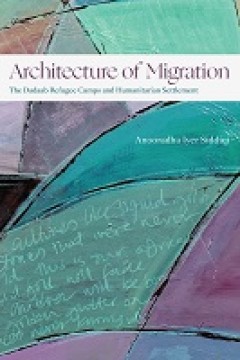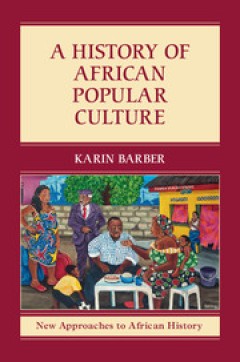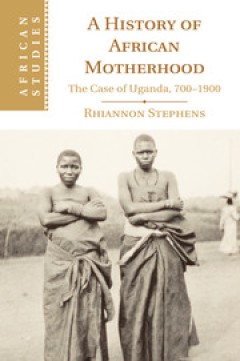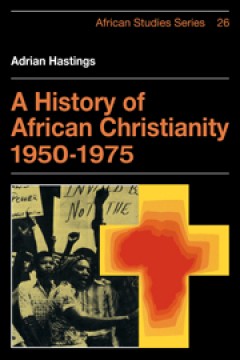Filter by

Architecture of Migration
Focusing on the Dadaab refugee camps established in 1991 on the Kenya-Somalia border, Anooradha Iyer Siddiqi shows how a refugee camp’s aesthetic and material landscapes—even if born out of emergency—reveal histories, futures, politics, and rhetorics.
- Edition
- -
- ISBN/ISSN
- 9781478025245
- Collation
- oer.unej.ac.id
- Series Title
- Theory in Forms,
- Call Number
- -

African Land Reform Under Economic Liberalisation
This open access book offers unique in-depth, comprehensive, and comparative analyses of the motivations, context, and outcomes of recent land reforms in Africa. Whereas a considerable number of land reforms have been carried out by African governments since the 1990s, no systematic analysis on their meaning has so far been conducted. In the age of land reform, Africa has seen drastic rural cha…
- Edition
- -
- ISBN/ISSN
- 978-981-16-4725-3
- Collation
- 203
- Series Title
- -
- Call Number
- -

The Ndebele, Frank Oates, and Knowledge Production in the 1870s = Encounters …
This open access book addresses a question fundamental to the histories of empire and Africa: at the point of the colonial encounter, how was knowledge made? How did different communities, with little or no prior contact, construct meaning about one another? Amidst huge changes in the politics and economics of a continent, on the cusp of almost complete colonization at the hands of European pow…
- Edition
- -
- ISBN/ISSN
- 9783031759635
- Collation
- IX, 125 hlm; ill., lamp.,
- Series Title
- -
- Call Number
- -

Mining Gold and Manufacturing Ignorance
This open access book charts how South Africa’s gold mines have systematically suppressed evidence of hazardous work practices and the risks associated with mining. For most of the twentieth century, South Africa was the world’s largest producer of gold. Although the country enjoyed a reputation for leading the world in occupational health legislation, the mining companies developed a syste…
- Edition
- 1
- ISBN/ISSN
- 978-981-19-8327-6
- Collation
- XIII, 459
- Series Title
- -
- Call Number
- -

Medical Missionaries and Colonial Knowledge in West Africa and Europe, 1885-1914
This open access book offers an entangled history of hygiene by showing how knowledge of purity, health and cleanliness was shaped by evangelical medical missionaries and their encounters with people in West Africa. By tracing the interactions and negotiations of six Basel Mission doctors, who practised on the Gold Coast and in Cameroon from 1885 to 1914, the author demonstrates how notions of …
- Edition
- 1
- ISBN/ISSN
- 978-3-031-27130-4
- Collation
- -
- Series Title
- Cambridge Imperial and Post-Colonial Studies
- Call Number
- XVIII, 454

How Data Quality Affects our Understanding of the Earnings Distribution
This open access book demonstrates how data quality issues affect all surveys and proposes methods that can be utilised to deal with the observable components of survey error in a statistically sound manner. This book begins by profiling the post-Apartheid period in South Africa's history when the sampling frame and survey methodology for household surveys was undergoing periodic changes due to…
- Edition
- 1
- ISBN/ISSN
- 978-981-19-3639-5
- Collation
- -
- Series Title
- -
- Call Number
- XX, 114

Medical Missionaries and Colonial Knowledge in West Africa and Europe, 1885-1914
This open access book offers an entangled history of hygiene by showing how knowledge of purity, health and cleanliness was shaped by evangelical medical missionaries and their encounters with people in West Africa. By tracing the interactions and negotiations of six Basel Mission doctors, who practised on the Gold Coast and in Cameroon from 1885 to 1914, the author demonstrates how notions of …
- Edition
- -
- ISBN/ISSN
- 978-3-031-27128-1
- Collation
- XVIII, 454
- Series Title
- -
- Call Number
- -

A History of African Popular Culture
Popular culture in Africa is the product of everyday life: the unofficial, the non-canonical. And it is the dynamism of this culture that makes Africa what it is. In this book, Karin Barber offers a journey through the history of music, theatre, fiction, song, dance, poetry, and film from the seventeenth century to the present day. From satires created by those living in West African coastal to…
- Edition
- -
- ISBN/ISSN
- 9781139061766
- Collation
- -
- Series Title
- New Approaches to African History
- Call Number
- -

A History of African Motherhood The Case of Uganda, 700–1900
This history of African motherhood over the longue durée demonstrates that it was, ideologically and practically, central to social, economic, cultural and political life. The book explores how people in the North Nyanzan societies of Uganda used an ideology of motherhood to shape their communities. More than biology, motherhood created essential social and political connections that cut acros…
- Edition
- -
- ISBN/ISSN
- 9781139344333
- Collation
- -
- Series Title
- African Studies
- Call Number
- -

A History of African Christianity 1950–1975
The churches in Africa probably constitute the most important growth area for Christianity in the second half of the twentieth century. From being a number of rather tightly controlled 'mission fields' zealously guarded by the great missionary societies, Catholic and Protestant, they have emerged across the last decades in bewildering variety to selfhood, a membership of close on a hundred mill…
- Edition
- -
- ISBN/ISSN
- 9780511563171
- Collation
- -
- Series Title
- African Studies
- Call Number
- -
 Computer Science, Information & General Works
Computer Science, Information & General Works  Philosophy & Psychology
Philosophy & Psychology  Religion
Religion  Social Sciences
Social Sciences  Language
Language  Pure Science
Pure Science  Applied Sciences
Applied Sciences  Art & Recreation
Art & Recreation  Literature
Literature  History & Geography
History & Geography